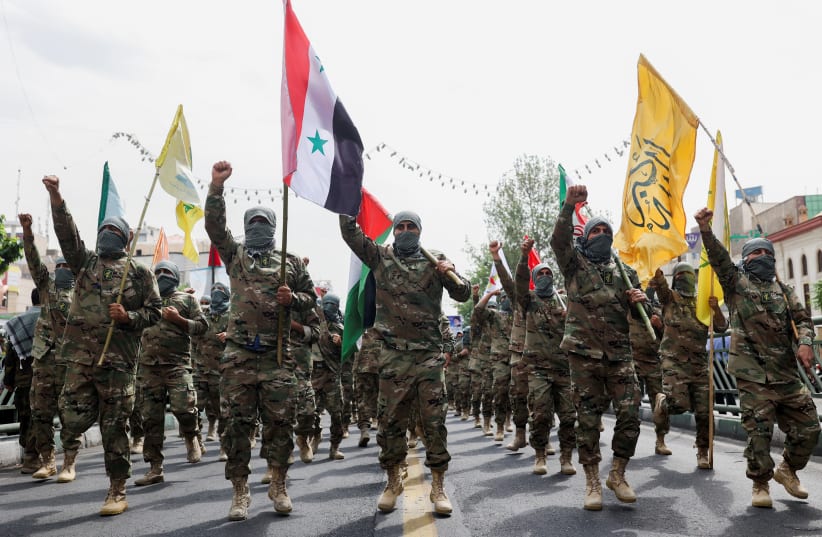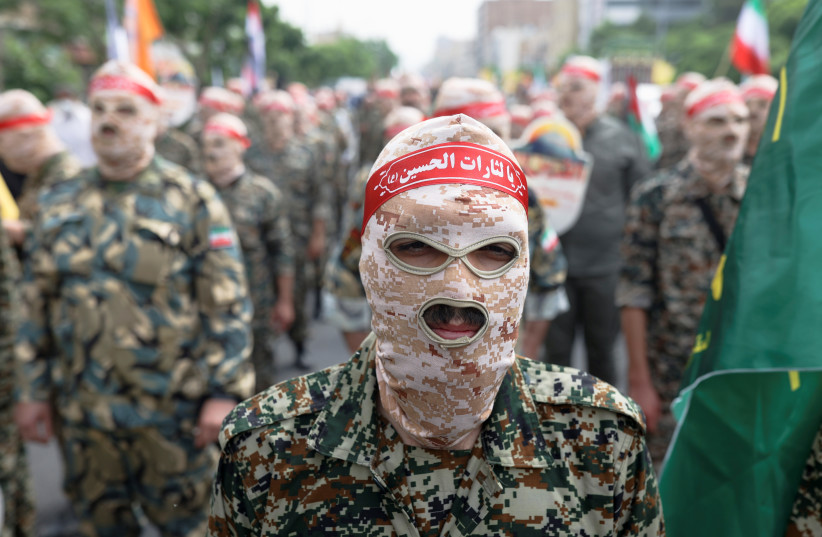Iranian media on Monday published accounts of a major bust of a human-trafficking operation. The story, however, is more salacious than the usual reports coming out of Iran’s pro-government media.
The report said the Islamic Revolutionary Guard Corps intelligence organization was involved in arresting the leader of a “gang” involved in trafficking Iranian women and girls to northern Iraq.
The report is interesting because it references Iran’s intelligence officers, known as “anonymous soldiers of Imam Zaman.” Why the IRGC and its intelligence arm was involved is unclear. The report said the agents arrested the leader of the trafficking organization and accused the group of involvement in promoting vice.
Human trafficking between Iran and Iraq
According to Iran’s Tasnim News Agency, which is close to the IRGC and is pro-government, vice can mean the promotion of “homosexuality, gambling, fraud and illicit sexual relations.”
It would appear that the report insinuates that young women were trafficked for sexual exploitation.
The Iranian intelligence agents “reached Erbil,” the report said. This means they operated deep inside northern Iraq’s autonomous Kurdish Region. Erbil is the capital of the Kurdistan Regional Government.
The intelligence agents penetrated the network, supposedly, and were able to stop this gang of traffickers, which Iran said was the “largest” of its kind. Several months of surveillance took place. The trafficking group had several operators and was accused of taking “hundreds” of girls to Erbil and that some “thousand people” were “sold” by this group.
Rudaw media in the Kurdistan Region also reported the story. The Erbil police department had not commented on the arrest yet, the report said.
“Human trafficking is a stain that Tehran has not been able to get rid of for years now,” Rudaw reported. “It was among the ‘worst human traffickers’ in 2018, a year after it ranked third in global human trafficking, according to a US State Department Report. Iranian women, boys, and girls are vulnerable to sex trafficking abroad, including in Iraq and the Kurdistan Region, the department said in its annual report last year.”
The report said some 2,000 young Iranian women and girls had entered the KRG in 2018. Many of them ended up victims, working in “cafes, hotels, and massage centers,” it said.
Honeypot operations
Iran’s regime has often used women or fake social-media accounts pretending to be women as a way to target adversaries abroad. These online “honeypot” operations have been revealed several times over the year. A Defense Connect story said Iran had targeted a US employee of an aerospace company in such an operation. Terrorist groups linked to Iran have also targeted Israel.
“Hackers believed to be working for the Iranian government have impersonated a young female photographer on social media for more than a year, luring men working in industries strategically important to Tehran’s regional adversaries, according to research,” Reuters reported in 2017.
It is believed that Iran has also used women or people posing as women in other intelligence operations. A “‘Honeytrap’ snares Iranian dissident Ruhollah Zam,” The Times of London reported in 2019. While the full details of the case may not be known, Zam was lured to a meeting in Iraq and then kidnapped and taken to Iran, where he was executed in 2020.
Another dissident may have been a victim of a similar scheme, Sky News reported in 2020.
“Habib Chaab: Files show how Iranian dissident was kidnapped in Turkey after ‘honeytrap by Iran… The string of security pictures, uncovered by the Turkish investigation, claim to show a plan was hatched to lure Mr Chaab to Turkey on the pretext of a romantic meeting with a young woman… The Turkish investigators claim she was, in reality, an Iranian spy who was acting as a ‘honeytrap,’” the report said.
The overall context of the IRGC being involved in busting a human-trafficking ring that targeted women may be more than is reported. It was unclear why the IRGC and its intelligence agents were sent to Erbil, why they focused on this ring and why Iran seems to have viewed this as an important security operation, whereas cracking down on vice and human trafficking, including prostitution and kidnapping of women, would normally be a police and law-enforcement issue, rather than an intelligence case.

